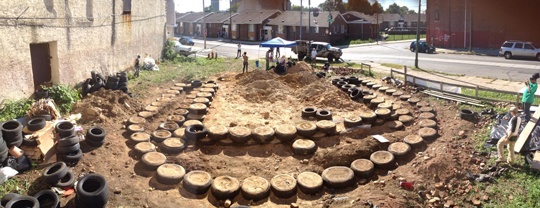 Community members work on what will be Philadelphia’s first Earthship.
Community members work on what will be Philadelphia’s first Earthship.
In West Philadelphia, organizers use tires and earth to create an ambitious and energy-passive home
At a glance, the open-air lot at the corner of 41st and Lancaster appears to be littered with garbage—tires piled up in the northwest corner, mounds of dirt and cement mixed in with empty bottles and cans. But these familiar objects are not strewn about randomly; they have been intentionally collected to build the first urban Earthship. When it’s completed, it could be the most sustainable building in Philadelphia.
An Earthship is a passive solar house made from both natural and recycled materials (such as earth-filled tires), which makes it much more affordable to build than a conventional home. The design is the brainchild of New Mexico based iconoclast architect Michael Reynolds. Five years ago, Philadelphia resident Rashida Ali-Campbell watched Garbage Warrior, a documentary about Reynolds, and her life was changed. “Explosions went off in my head,” Ali-Campbell says. “Why haven’t we seen that here already?”
Ali-Campbell, founder of LoveLovingLove Inc., a Philadelphia nonprofit that aims to strengthen and heal underserved communities, has been working tirelessly to get an Earthship in Philadelphia, and has successfully assembled a team of collaborators. Construction on this project began in October of 2014.
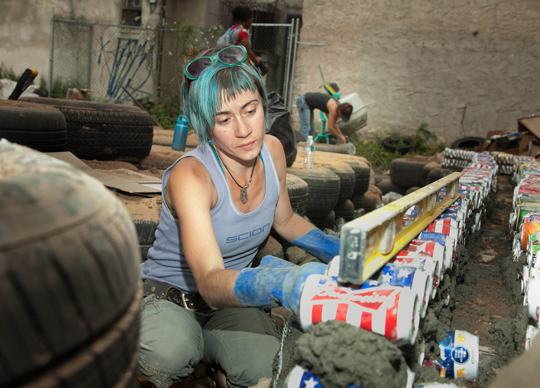
Ali-Campbell initially reached out to Earthship Biotecture, the New Mexico-based company responsible for the distribution of designs and oversight of construction of these eco-homes. The company responded enthusiastically, donating over $7,000 worth of drawings and dispatching local Earthship expert (and son of Michael Reynolds) Jonah Reynolds to help educate citizens, community leaders and politicians on the benefits of Earthship architecture.
The principles of Earthship design, Jonah says, embody a much deeper definition of sustainability than even the highest-certified green buildings. The Earthships feature plant-powered “floor-to-Everglades” sewage treatment systems that allow tenants to grow fruit and vegetables year-round without paying a utility bill.
The homes also regulate temperature, relying on walls made of earth-rammed tires that keep them around 70 degrees all year. The Philadelphia Earthship will feature an extra layer of thermal siding, both for extra warmth in the city’s winters and for aesthetic flexibility. In fact, aesthetics were the primary concern for the city council members from whom Ali-Campbell and Jonah sought permission for the project. A slight departure from the rounded adobe abodes of the traditional Earthship, this building will have corners and a brick-like matrix to fit in with the conventional urban aesthetic of its neighbors.
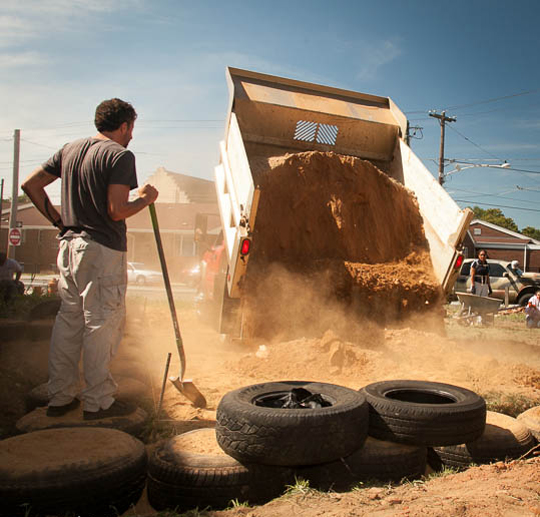
“The Earthships take it to that next level of affordability and accessibility,” says Rob Petito, a contractor for Greenwright, Inc., who has partnered with Ali-Campbell and Jonah to bring Earthships into the urban East. “It’s a new level of freedom.”
The Earthship on 41st will serve as office space for both LoveLovingLove and Earthship Biotecture, and as a continuous demonstration space, where members of the community can interact with the living systems at work in the building. Ali-Campbell says the Earthship should be finished by the end of the summer and open to the public.
“We want people to see the house, turn the water on, turn the light switches on, touch the walls, see that they don’t see tires,” says Ali-Campbell. Community engagement has been a focal point in the project’s construction, which was completed through a series of crowd-funded hands-on workshops.
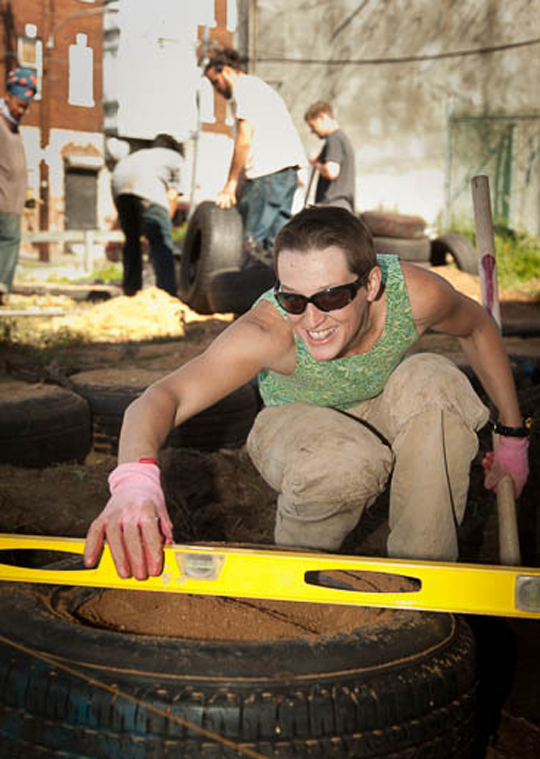
Beyond this project itself, many have high hopes for the role that Earthships, which allow for very low-cost living in complete independence from fossil fuels, could play in Philadelphia’s sustainable future.
“I’ve been saying for many years: if it’s not an Earthship, it’s not affordable housing,” says Paul Glover, community organizer and founder of Green Jobs Philly, Philadelphia Orchard Project, Ithaca HOURS, Health Democracy and a dozen other environmental organizations. “These networks of Earthships reduce the cost of living, increase the capability to be productive rather than dependent, and they begin where there is the greatest neglected need.”


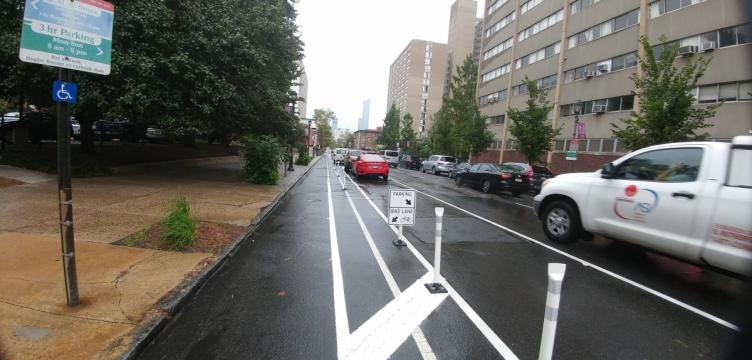



Earthship Philadelphia – Get Involved.
Our mission is to heal impoverished communities with holistic health education and love. https://earthshipbiotecture.com/philadelphia/